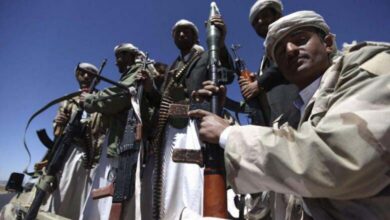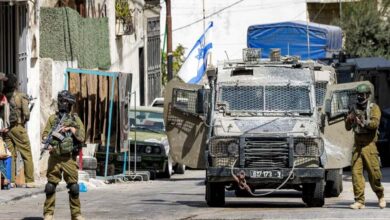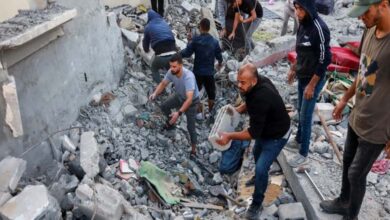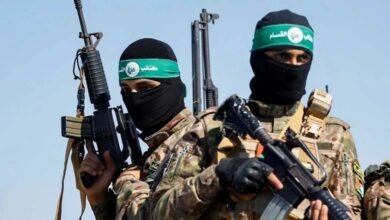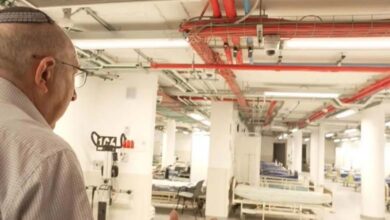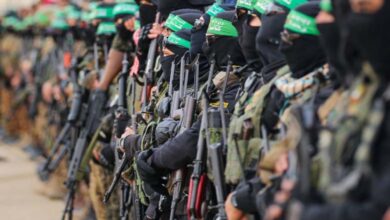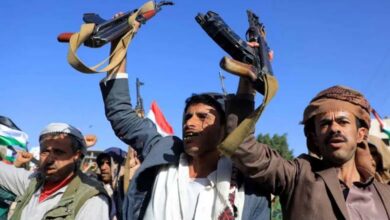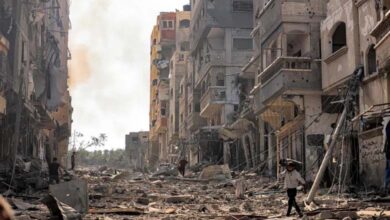Joseph Aoun Seeks to Avoid Fallout from Hezbollah Disarmament
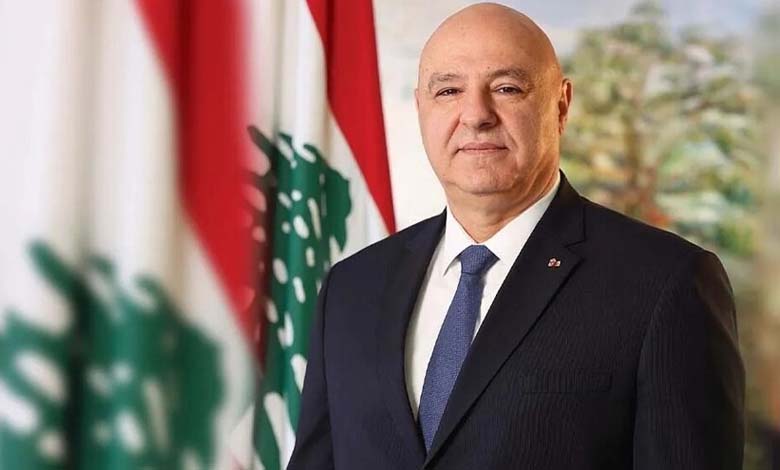
Lebanese President: “We will do everything possible, and more, to spare Lebanon any internal or external shock.”
Lebanese President Joseph Aoun stated on Sunday that the authorities are working to avert any “shock” following their decision to strip Hezbollah of its weapons — a move the party fiercely rejected, warning it could trigger a “civil war.”
-
Hezbollah threatens civil war in Lebanon and warns of a Karbala-style battle
-
Hezbollah threatens Lebanon with a Karbala-style battle to keep its weapons
His remarks came as U.S. envoy Tom Barrack returned to Beirut for the first time since the government tasked the Lebanese army with drafting a plan to disarm Hezbollah by the end of the year.
In an interview aired Sunday on Saudi channel Al-Arabiya, Aoun stressed: “Lebanon is exhausted from wars and crises. We will do everything possible, and more, to spare the country any internal or external turmoil,” in response to fears of potential infighting.
The decision to disarm Hezbollah marks the first such move by Lebanese authorities since the end of the civil war (1975–1990).
-
Hezbollah Faces a Silent Collapse: Missing Leadership, Besieged Weapons
-
Beirut Port Explosion Anniversary: Justice Moves Forward Despite Hezbollah’s Obstruction
According to the state-run National News Agency, Barrack arrived in Beirut and was scheduled to meet several Lebanese officials on Monday, as the country faces an unprecedented crisis between Hezbollah, the government, and various political forces. Samir Geagea, leader of the Lebanese Forces, described Hezbollah deputy leader Naim Qassem’s statements as a “direct threat” against the government and constitutional institutions.
The government’s decision came amid U.S. pressure and fears that Israel might carry out its threats of a new military campaign after months of clashes with Hezbollah, which has sustained heavy losses. Beirut also approved the contents of a proposal Barrack had presented to Lebanese officials.
-
The Lebanese Government Tightens Financial Pressure on Hezbollah by Banning Dealings with Al-Qard Al-Hassan
-
U.S. Patience Wears Thin as Hezbollah Disarmament Stalls
Asked about this proposal, Aoun confirmed: “We studied it, added our comments, and conveyed our approval. Now let them secure the other party’s consent” — referring to Israel.
He explained that the authorities faced two choices: either accept the document and push for “Israel’s approval,” or reject it, “in which case Israel would escalate its attacks, Lebanon would be economically isolated, and none of us would be able to respond.”
He added: “If anyone has a third option that could secure Israel’s withdrawal, the release of prisoners, border demarcation, and economic revival, let them bring it forward.”
-
Taëf and Weapons Control: Salam Stands for State Restoration, Hezbollah Holds Its Ground
-
Hezbollah resists internal and external pressure to disarm
For his part, Hezbollah Secretary-General Naim Qassem accused the government of “carrying out the American-Israeli agenda” on disarmament, even if it leads to “civil war and internal strife.”
Hezbollah has reiterated that it will not discuss its weapons as long as “aggression” continues — referring to Israeli airstrikes in Lebanon and the ongoing presence of Israeli forces at five points in the south, despite the ceasefire agreement reached last November.
-
Israel Warns Naim Qassem: There Will Be No Hezbollah in That Case
-
Lebanon Dismantles Hezbollah Network with Israeli Support
Israel, for its part, insists it is targeting Hezbollah fighters and infrastructure, and has threatened to expand its military operations in Lebanon unless the authorities move forward with disarmament.
Amid this escalating crisis, Lebanon faces a dual challenge: the internal struggle between the project of a sovereign state and that of Hezbollah, alongside mounting regional and international pressures. The country’s future hangs between the government’s ability to press ahead with its decision to rebuild a functional state, or a reality dictated by threats, which would deepen divisions and indefinitely postpone a resolution to the crisis.


